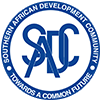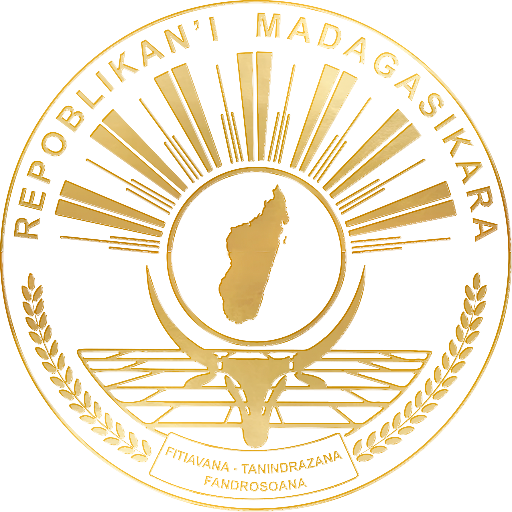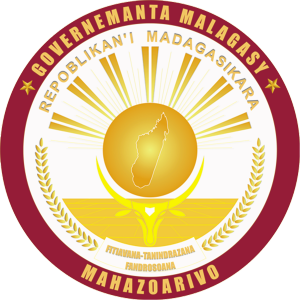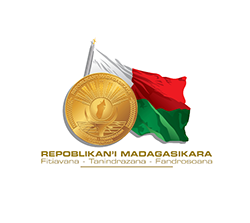Madagascar
Geographical Location
Located in the south-western region of the Indian Ocean, Madagascar is the fourth largest island in the world and the largest on the African continent. It lies approximately 400 km off the coast of Mozambique.
Its capital, Antananarivo, situated at an altitude ranging from 1,250 to 1,450 meters, will host the 45th Summit of SADC Heads of State and Government.
Madagascar is distinguished by the richness of its landscapes and abundance of natural resources. A true ecological mosaic, the Big Island offers remarkable diversity: from the arid bush of the far South to the humid forests of the East, through the granite Central Highlands sometimes dotted with volcanic massifs, and the savannahs of the West with its 5,000 km coastline.
Thanks to its island status, varied terrain, and climates, Madagascar is home to unique fauna and flora. Over 80% of the species living there are endemic, making the island a genuine biodiversity sanctuary and a remarkable natural heritage site.
Local time
GMT+3
Political system
Madagascar is a republic with a multi-party system. The President of the Republic is the Head of State, while the Prime Minister serves as Head of Government.
Executive power is exercised by the Government. Legislative power is shared between two chambers: the National Assembly and the Senate. The judiciary is independent, ensuring institutional balance.
The Head of State, H.E. Mr. Andry Nirina RAJOELINA, was re-elected by direct universal suffrage for a second term in the presidential election held on 1 December 2023.
Currency
The national currency of Madagascar is the Ariary (MGA). Exchange rates may fluctuate, but as a guideline:
- 1 Euro (EUR) is approximately 5,000 MGA
- 1 US Dollar (USD) is approximately 4,500 MGA
Participants are advised to check updated exchange rates before arrival or with official exchange offices in Madagascar.
Climate
Madagascar has two main seasons: a hot and humid season from November to April, and a cool, dry season from May to October.
August marks the winter period, especially pronounced in the Highlands, including Antananarivo.
Temperatures generally range from 10°C in the morning to 23°C during the day, with often sunny skies, occasionally interrupted by light drizzle or morning fog.
It is therefore strongly recommended to bring warm clothing, particularly for outings in the morning or evening.
Population and culture
Madagascar has nearly 30 million inhabitants, with 80% living in rural areas.
Beyond the cultural diversity characterising its various regions, the country is united by fundamental values such as “Fihavanana,” a concept deeply rooted in Malagasy society that embodies solidarity, kinship, tolerance, and friendliness.
This cohesion is further strengthened by the widespread use of the Malagasy language, the country’s primary official language and a symbol of national unity.
Added to this is the legendary hospitality of the Malagasy people, who warmly, respectfully, and kindly welcome every visitor as a cherished guest.
Languages
Malagasy is the national language and the primary official language, spoken by the entire population across the country.
French, also an official language, is widely used in administration, education, business and international relations.
English is increasingly used, particularly in diplomatic and commercial exchanges, although its use remains limited to certain sectors.
International Bank Cards
International bank cards, notably VISA and MASTERCARD, are widely accepted in Madagascar, especially in major hotels, shops, restaurants, and with designated tour operators.
Some ATMs also allow withdrawals using these cards. However, delegates are advised to verify international banking fees with their own banks in advance and to carry some cash in Ariary (MGA) for local transactions in markets, small shops, or areas where electronic payments are not accepted.
Banks and Currency Exchange Offices (Bureaux de change)
Bureaux de change are available in major cities, at international airports and at the International Conference Centre (ICC) in Ivato.
Bank branches also offer foreign exchange services.
The most accepted foreign currencies are the Euro (EUR) and the US Dollar (USD).
It should be noted that foreign exchange transactions are subject to strict regulations set by the Central Bank of Madagascar.
Delegates are therefore strongly advised to comply with applicable rules and to keep all exchange receipts.
Shops and Office Hours
Public offices and government institutions in Madagascar are generally open from Monday to Friday, from 08:00 to 16:00.
Shops, boutiques and small businesses typically operate from Monday to Saturday, from 09:00 to 17:00.
Supermarkets and self-service stores are usually open from Monday to Saturday, 9h00 to 19h30, and on Sunday from 9h00 to 13h00.
International Dialing Code
The international dialing code for Madagascar is +261.
Mobile Communication and Internet Access
Madagascar has good mobile coverage provided by three main operators: Yas, Orange and Airtel.
These providers offer telephony, messaging, and high-speed internet services, with extensive coverage across the country, especially in the capital, Antananarivo.
Wi-Fi access is available:
- in the designated hotels, including rooms and common areas;
- at Ivato International Airport; and
- at the Ivato International Conference Center (ICC), where high-speed internet will be provided throughout the Summit.
Cultural Taboos and Prohibited Practices
As in all societies, the Malagasy population is deeply attached to its customs, traditions, and core values.
Delegates are strongly advised to respect local cultural norms, particularly in terms of public behaviour, dress codes and attitude towards traditional or religious symbols. Any action that could be perceived as disrespectful to cultural or religious beliefs should be strictly avoided.
In its commitment to maintaining a safe and respectable environment, Madagascar enforces strict legislation on human rights protection. The Malagasy Penal Code severely punishes procuring, paedophilia, and all forms of child sexual exploitation. Violations of these laws are subject to criminal prosecution and strict penalties.




















